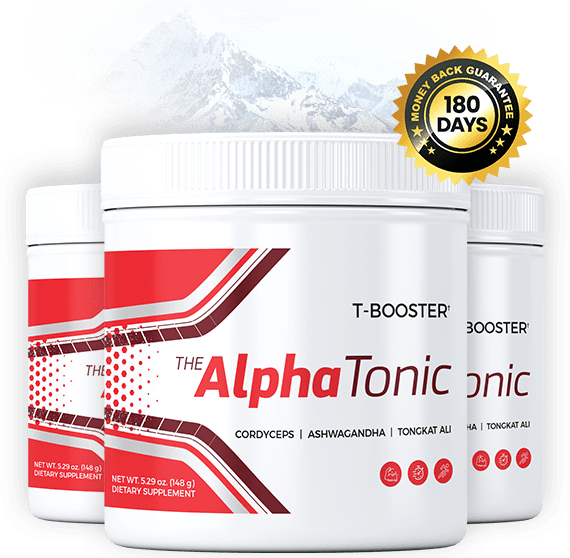Tonic water has limited health benefits and contains added sugars. It may aid in relieving minor muscle cramps due to its quinine content.
Tonic water is a carbonated beverage that has had a long-standing association with social events and cherished cocktails, most famously the gin and tonic. While it originated as a preventive remedy for malaria, due to the presence of quinine, its health advantages in modern times are minimal.
Quinine gives tonic water its characteristic bitter taste and can soothe muscle cramps to some extent. Nevertheless, tonic water is not a healthy choice when consumed in large amounts because it often contains as much sugar as soft drinks. For individuals monitoring their caloric and sugar intake, the caloric and sugar content of tonic water is a significant consideration. Thus, while enjoying tonic water in moderation is generally safe for most people, it shouldn’t be considered a healthful addition to one’s diet.

Tonic Water Origins And Composition
Tonic water has an interesting history linked to colonial times. British officials in India took quinine as a preventative against malaria. This bitter medicine was mixed with water and sugar for better taste, leading to the creation of tonic water.
Modern tonic water may contain sugar or high-fructose corn syrup. It often includes natural flavors and sometimes caffeine. Quinine is still present but in much smaller amounts. It’s important to read the label as ingredients can vary.
| Ingredient | Common Use |
|---|---|
| Quinine | Malaria prevention, adds bitterness |
| Sugar/High-Fructose Corn Syrup | Sweetening agent |
| Natural Flavors | Enhance taste |
| Caffeine (if added) | Stimulant |
Debunking Health Myths Around Tonic Water
Tonic water isn’t just a mixer for cocktails.
It contains a small amount of quinine.
Historically, quinine was used to treat malaria.
Yet, the amount in tonic water is much lower than medical doses.
Some people think it helps with leg cramps, but evidence is weak.
On the other hand, regular water hydrates with no added ingredients.
It’s a healthier choice for daily hydration.
Tonic water can have sugar and calories, unlike regular water.
Choose wisely for health benefits.
Nutritional Profile And Caloric Content
Tonic water might seem like a healthy alternative to soda, but it’s not that simple. A typical glass has about 124 calories and 32 grams of sugar, similar to many sugary soft drinks. Comparatively, other soft drinks, though calorie-dense, can have a range of sugar content. The table below shows how tonic water stacks up against some popular beverages:
| Drink | Calories (per serving) | Sugar (grams per serving) |
|---|---|---|
| Tonic Water | 124 | 32 |
| Cola | 136 | 35 |
| Diet Tonic Water | 0 | 0 |
| Sparkling Water | 0 | 0 |
Despite its clear, crisp taste, tonic water’s sugar content is high. Alternatives like diet tonic water or sparkling water offer fewer calories and no sugar. This makes them better choices for a healthy lifestyle.

Potential Health Benefits And Risks
Tonic water contains a substance named quinine. Quinine may ease leg cramps and malaria symptoms. Small amounts of quinine help against these issues.
Quinine can lead to risks for some people. Side effects include nausea, diarrhea, and headaches. People with heart conditions or pregnant women should avoid it. Always talk to a doctor before trying tonic water for health issues.
Choosing The Right Tonic Water For You
Different Types and Brands on the Market:
- Classic Quinine Tonic: Contains quinine, giving it a bitter taste.
- Diet Tonic Water: Has fewer calories and is sweetened with artificial sweeteners.
- Flavored Tonic Water: Offers a variety of tastes with added fruity flavors.
Tips for Making Healthier Choices:
- Choose tonic water with no artificial sweeteners. Natural options are better.
- Read labels for lower sugar content. Too much sugar is not good for you.
- Look for smaller serving sizes to control calorie intake.
Tonic Water In Culinary Uses
Tonic water shines in the world of mixology. Its unique bitter flavor, courtesy of quinine, pairs well with various spirits. Imagine sipping a classic Gin and Tonic, the effervescence tingling your palate. Or a Vodka Tonic: a simple mix yet full of charm. Tonic water elevates these drinks from ordinary to memorable.
But tonic’s talents go beyond traditional cocktails. Creative chefs infuse tonic into sorbets and desserts, adding a twist to sweet treats. Home cooks use it to deglaze pans or as a secret ingredient in sauces. Tonic water adds a subtle complexity that can transform a dish. These culinary experiments bring out the unexpected potential of tonic water, proving it’s not just for toasting.

Frequently Asked Questions On Is Tonic Water Good For You
What Are The Benefits Of Drinking Tonic Water?
Tonic water may provide relief for leg cramps due to its quinine content. It also serves as a low-calorie, flavorful alternative to sugary soft drinks.
Is It Ok To Drink Tonic Water Every Day?
Drinking tonic water daily is generally safe but may cause side effects due to its quinine content. Monitor your intake and consult a healthcare professional if unsure.
What Are The Pros And Cons Of Tonic Water?
Pros of tonic water include its refreshing taste and digestive aid properties due to its quinine content. Cons involve its high sugar content and potential side effects from quinine, such as cramps or nausea.
What Does Quinine Do To The Body?
Quinine treats malaria by killing the parasite that causes the disease. It also can alleviate leg cramps, though its use for this purpose is less common.
Conclusion
Tonic water holds a curious spot in the beverage world. While it’s not a health drink, its quinine content can be appealing to select palates. Remember, moderation is key, as the added sugars count. Consider your dietary needs and enjoy tonic water as part of a balanced lifestyle.
Cheers to informed sipping!

